16 women championing the fight against Gender-Based Violence in East and Southern Africa
Date:
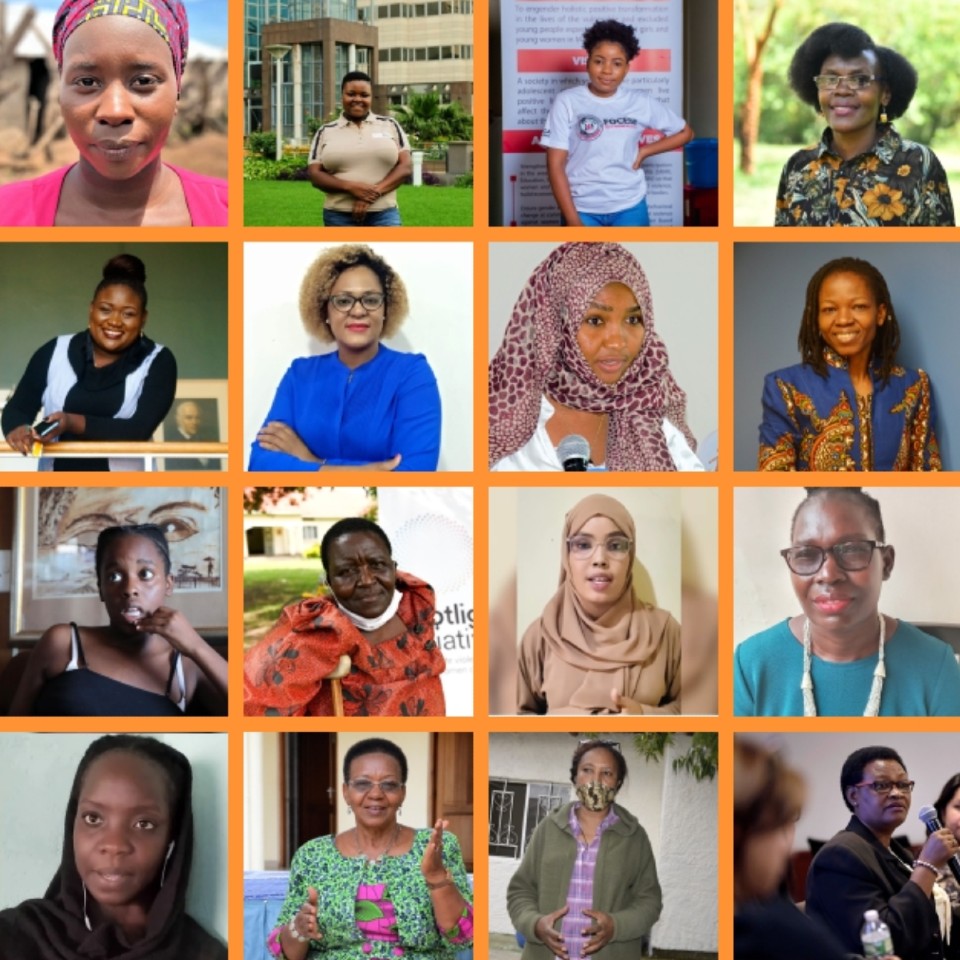
At least 1 in 3 women have experienced violence, globally. At least one in three young women in Africa are married before they turn 18. About 200 million girls and women have been subjected to female genital mutilation. Gender-based violence is the most pervasive violation of human rights, but it can and must be prevented.
From Ms. Asseny Muro, 72, one of the pioneers of the Beijing Platform for Action (1995), to Glanis Changachirere, Zimbabwean women’s rights activist and founding Director of the Institute for Young Women Development (IYWD), to young Munnira Katongole, a South African activist fighting for social change, the UN Women East and Southern Africa inaugural list of 16 outstanding women activists is packed with inspiration, resilience, and passion.
The list was released to mark 16 days of activism campaign on 25 November to 15 December 2021, acknowledging and celebrating the social, economic, cultural, and political achievements of women and their unceasing efforts to fight for gender equality.
Drawn from all spheres of life, the 16 women are just a small fraction that represent hundreds of women in the region who are at the forefront of ensuring that women and girls are safe and protected from all forms of violence.
Caren Omanga - Kenya
Caren Omanga has been a social activist for over 20 years. After working six years as a teacher, she felt she could do more to counter the injustices she had witnessed from an early age. She is now a human rights defender in Kisumu County, helping women and many survivors of gender-based violence to achieve justice. She used to trade second-hand clothes to fund her activism, arranging sit-ins at police station and marches through the city. “I’ve seen a lot of human rights violations in the slums where I grew up. Life in these places is not conducive for human rights”, says Caren.
I’ve seen a lot of human rights violations in the slums where I grew up. Life in these places is not conducive for human rights”.
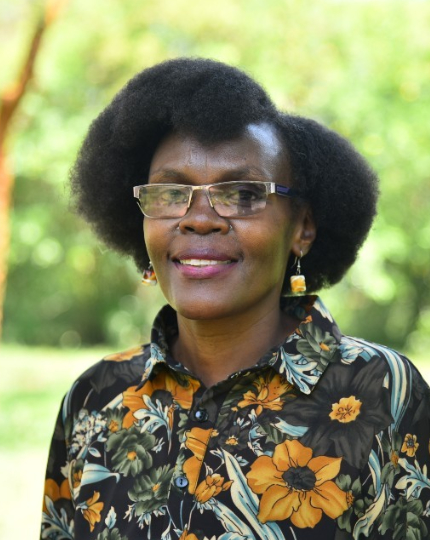
Photo: Luke Horswell UN Women
Rose Christine Adikini – Uganda
Ms. Rose Christine Adikini, 56 years old, is Lead Councillor of Persons Living with Disabilities in Tororo District, Uganda. Rose participated in a UN Women-supported leadership training run by the National Union of Women with Disabilities of Uganda (NUWODU). In this role, she serves as a central point of contact for women and girls with and without disabilities to report violence. She also represents the interests of her peers at community engagements and consultations. Her advocacy has led to the installation of ramps in buildings across Tororo and surrounding sub-counties, improving accessibility for people with disabilities. Women with disabilities are at greater risk of violence and discrimination due to social exclusion, limited mobility, a lack of support structures and communication barriers.

Rose Christine Adikini. Photo: Eva Sibanda/UN Women
I have always acted as a voice for women with disabilities in my community.
Asseny Muro – Tanzania
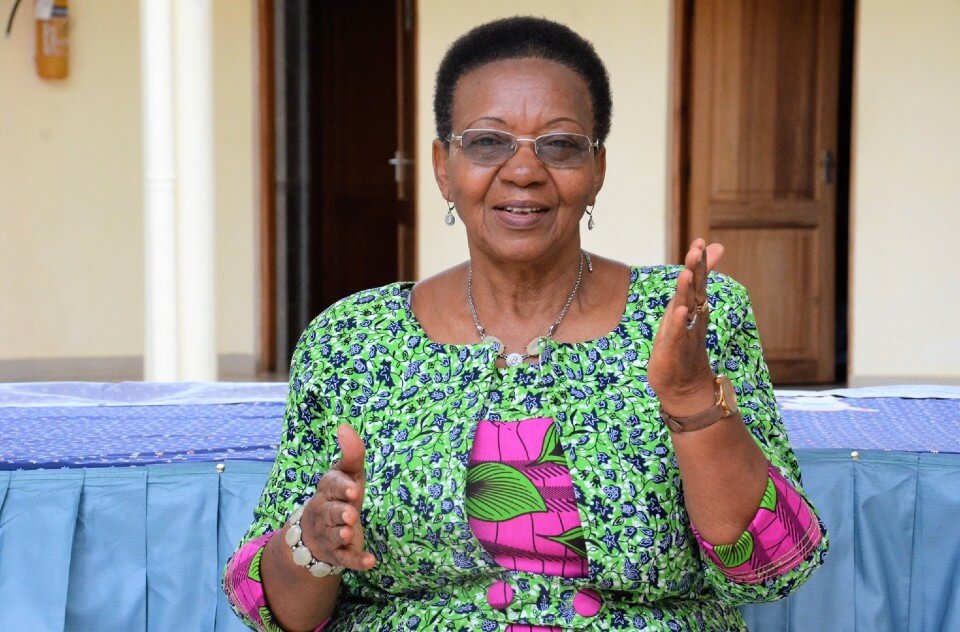
Ms. Asseny Muro, 72, is one of the pioneers of the Beijing Platform for Action (1995) and spent more than half her life championing the rights of women in Tanzania. In 1993, Muro was one of the founders of the Tanzania Gender Networking Programme (TGNP), a leading women’s rights and feminist organization where she is currently the Chairperson of the Board. She is also a Champion of the Generation Equality Campaign by UN Women, and a Steering Committee Member of the Tanzania Chapter of the African Women Leaders’ Network (AWLN). A firm believer that the aspirations of the Beijing Platform for Action are relevant today, Muro calls on young women and girls to demonstrate their capacity and interest to take over the baton from previous generations.
Hirut Yibabe - Ethiopia
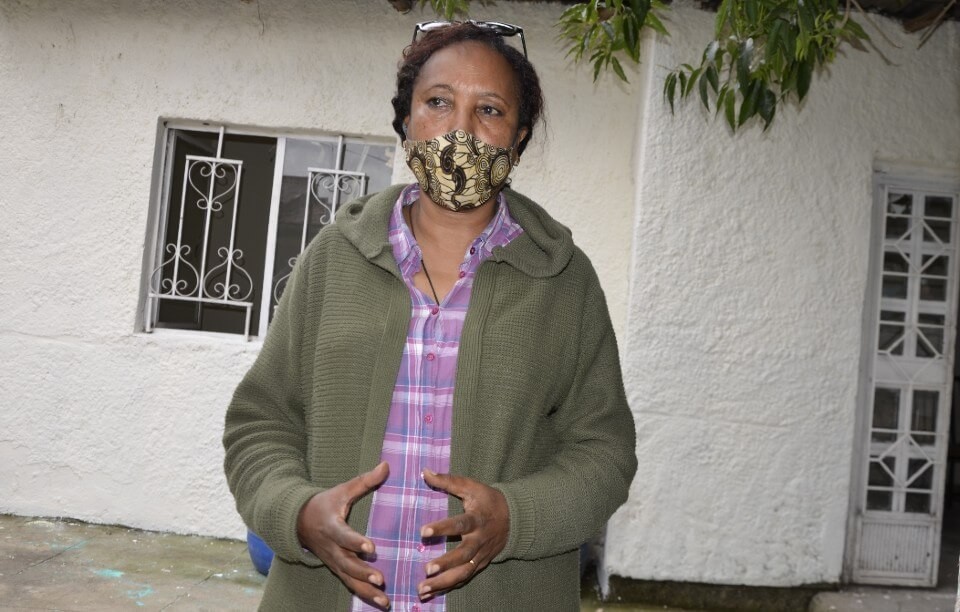
Hirut Yibabe is a 59-year-old Ethiopian, co-founder and Executive Director of Good Samaritan Association (GSA). GSA is one of UN Women’s implementing partners. It provides shelter and health care services focusing on gender-based violence victims of human trafficking and migrant returnees and provides psychological counselling, medical treatment as well as basic life, and business skills trainings.
Rufaro Chakanetsa – Zimbabwe
Rufaro is a co-founder of Taking a Stand Against Gender-based Violence, a campaign that runs advocacy initiatives through platforms such as WhatsApp group platforms and community-based forums and distributes knowledge-building materials for behavior change. These platforms share knowledge on referral pathways, safe shelters, and national hotlines.
“I speak for women’s rights because I want to help end practices, belief systems and customs that seem acceptable in our society and have been passed on for generations, yet they violate women’s rights.”
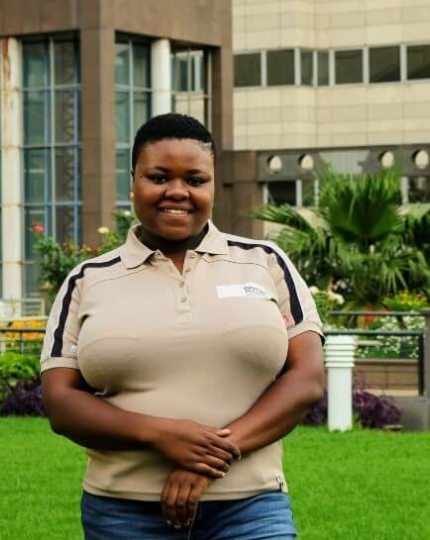
Photo: UN Women/Getrude Chigerwe
I speak for women’s rights because I want to help end practices, belief systems and customs that seem acceptable in our society and have been passed on for generations, yet they violate women’s rights.”
Christie Banda - Malawi
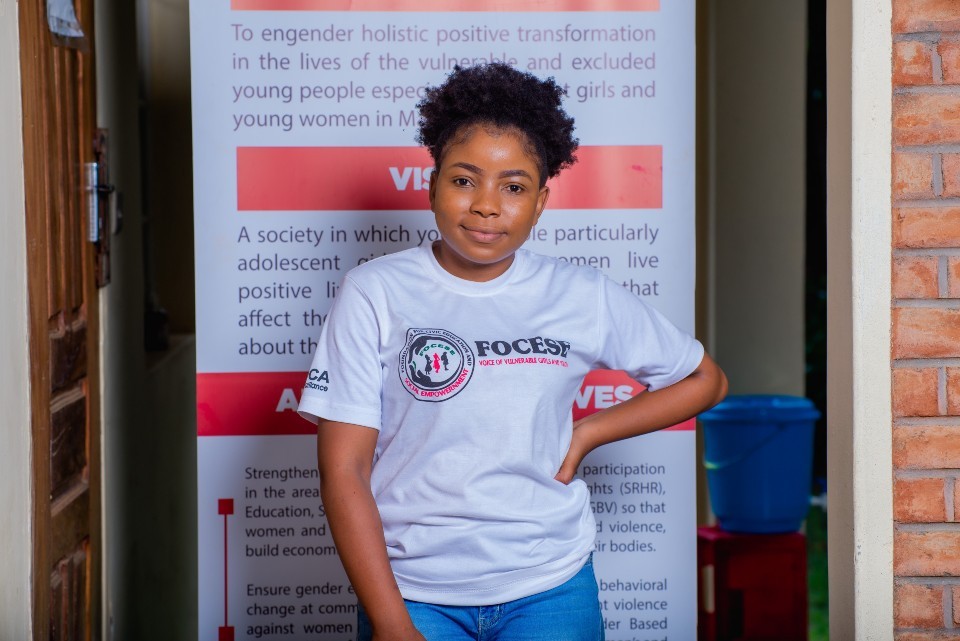
Malawi Christie Banda, 28-year-old activist against gender-based violence, heads the Foundation for Civic Education and Social Empowerment organization (FOCESE), a key ally of the global Spotlight Initiative (the EU-UN partnership to eliminate all forms of violence against women and girls by 2030) in Malawi. As part of Spotlight, UN Women Malawi works with partners like FOCESE to build powerful alliances at the community level and change attitudes and behaviors related to gender-based violence and harmful practices.
Natalie Robi Tingo - Kenya
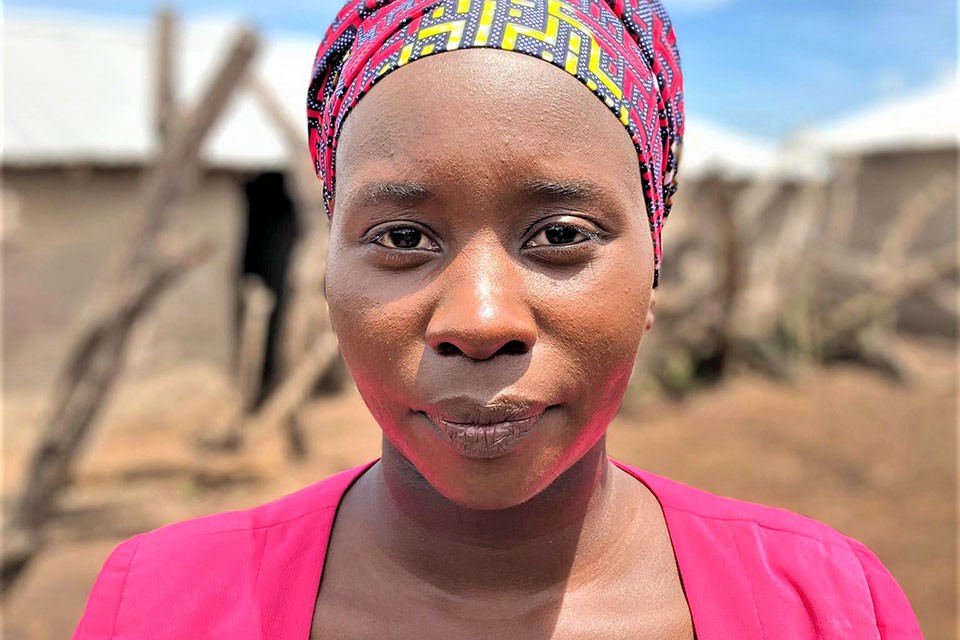
Natalie Robi Tingo, 28, is the Founder and Executive Director of Msichana Empowerment Kuria, a women-led community-based organization in rural Kenya that has since 2015 worked to end female genital mutilation (FGM) by tackling its root causes and empowering women and girls.
Munnira Katongole – South Africa
Munnira Katongole is a 17-year-old South African activist fighting for social change and climate justice. She is part of the South African Institute of International Affairs’ Youth Policy Committee on climate.
“Millions of women and girls are being abused and killed every day, simply for existing in this white, patriarchal society. How can one not speak up for gender equality? I’m an unapologetic, radical, Black feminist. Seeing young girls suffer and even die, completely unnecessarily, fuels my activism.”
Millions of women and girls are being abused and killed every day, simply for existing in this white, patriarchal society. How can one not speak up for gender equality? I’m an unapologetic, radical, Black feminist. Seeing young girls suffer and even die, completely unnecessarily, fuels my activism.”
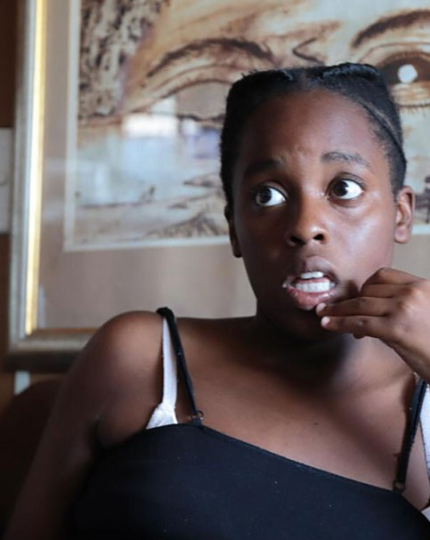
Photo courtesy of Munnira Katongole
Mzuri Issa - Tanzania
Issa had just begun her career as a journalist in the early 90s, when she learned about a law that discriminated against women and girls who got pregnant out of wedlock. The penalty could include a prison sentence for the pregnant woman. She reported on the issue for years, and worked alongside media partners and activists, calling for the review of the law. The law was finally changed in 2005.
With funding and technical support from UN Women, TAMWA-Zanzibar has been working with religious leaders and grass-roots communities since 2010, to change cultural norms, attitudes and practices that create barriers to women’s empowerment – including their access to leadership and decision-making positions.
“I work in advocacy to change perceptions that lead to discrimination against women and [to uplift] women’s status in society,” she says.
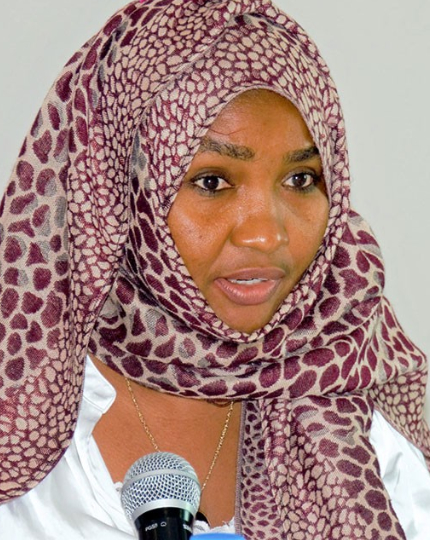
Photo: UN Women/Hanna Mtango
I work in advocacy to change perceptions that lead to discrimination against women and [to uplift] women’s status in society.”
Glanis Changachirere - Zimbabwe
Glanis Changachirere, Zimbabwean women’s rights activist, is the founding Director of the Institute for Young Women Development (IYWD) and the founding Coordinator of the African Women Leaders Forum. She is also a member of the Steering Committee of the Zimbabwean chapter of the UN Women-supported African Women Leaders Network.
Raised in the deeply patriarchal, rural province of Mashonaland Central, Zimbabwe, Changachirere explains that it was the pain she experienced trying to assert that girls were equal to boys and deserved equal education and career opportunities that motivated her to start IYDW at the age of 26: “As young women, we need to redefine ourselves, both to ourselves and also to the society they need to see a young women in a different way altogether,” she says.
As young women, we need to redefine ourselves, both to ourselves and also to the society they need to see a young women in a different way altogether,"
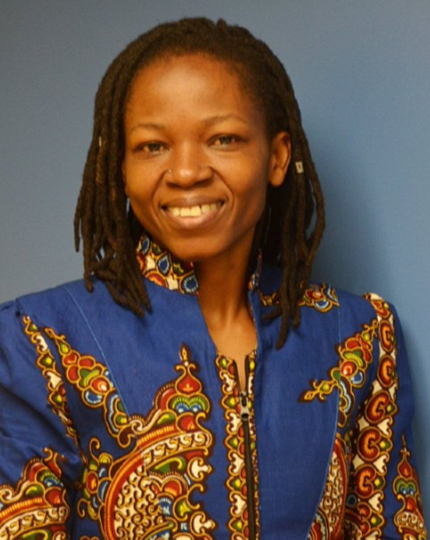
Photo: Courtesy of Glanis Changachirerea
Marie Goretti Ndacayisaba – Burundi
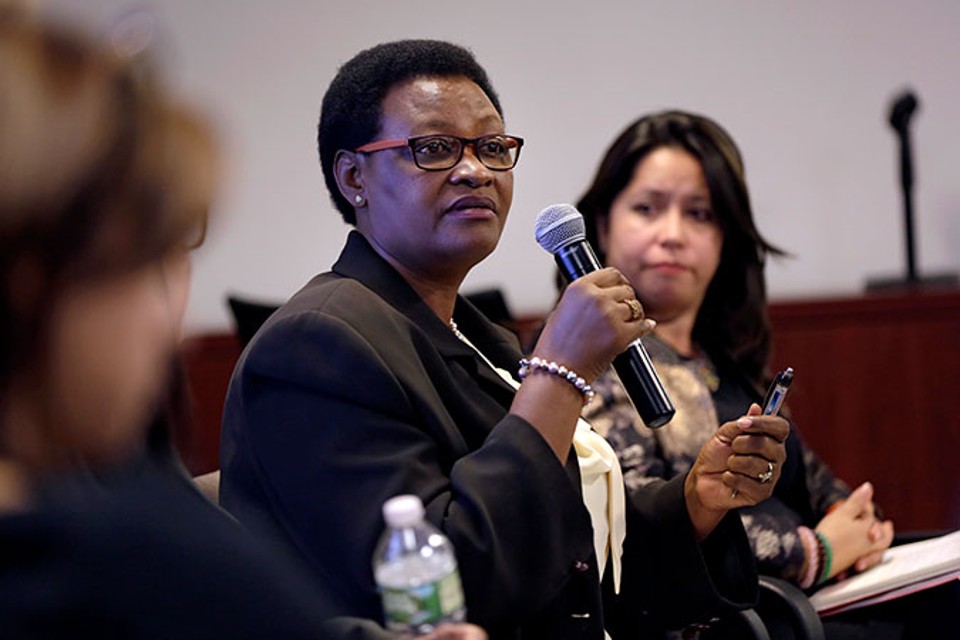
Marie Goretti Ndacayisaba is the Executive Director of Dushirehamwe (meaning, ‘let’s be together for peace’) in Burundi. She promotes women’s role in peacebuilding.
Dushirehamwe is supported by UN Women through the Women’s Peace and Humanitarian Fund. Between 1993 and 2005, the civil war in Burundi killed almost 300,000 people and left hundreds of thousands displaced. In 2015, political unrest plunged the country back into protracted crisis. In October 2017, Ndacayisaba spoke at a side event at the United Nations, co-organized by UN Women, Impunity Watch and Oxfam IBIS, with the support of the Permanent Mission of the Kingdom of the Netherlands to the United Nations. Her story shows the importance of engaging women in peacebuilding efforts at all levels to fulfill the vision of Sustainable Development Goal 16, which promotes peaceful and inclusive societies.
Thelma Kaliu – Malawi
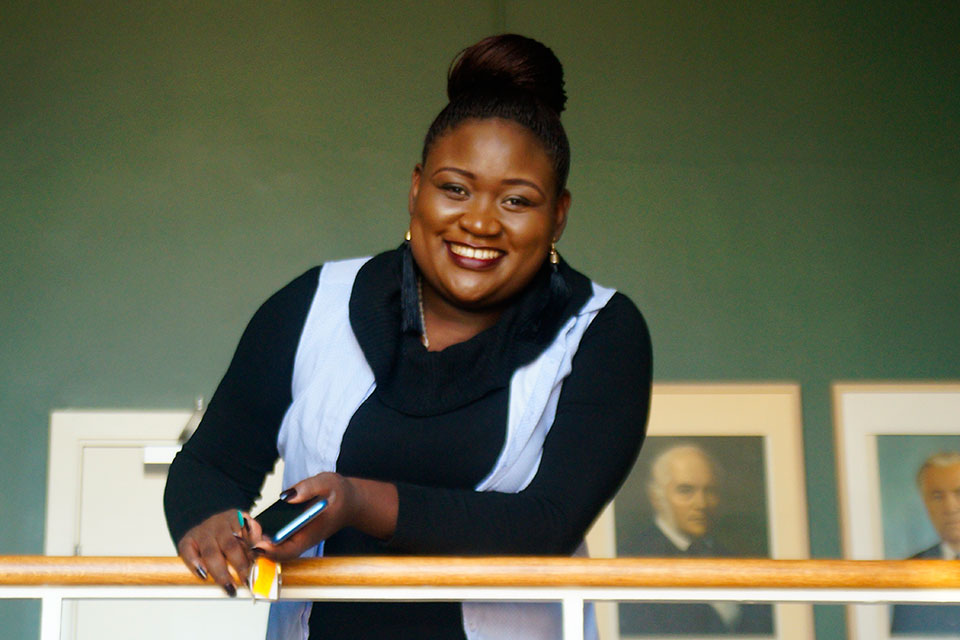
Thelma Kaliu is a young feminist and an active member of the Young Feminist Network of Malawi. She is currently the Project Coordinator of the Spotlight Initiative project under Plan International, Malawi. In 2019, before the COVID-19 pandemic, Thelma attended the launch of the Malawi Chapter of the African Women Leaders Network (AWLN) and was excited about the growth of a movement that was enthusiastically embracing young African women. Supported by the EU-UN Spotlight Initiative, the largest effort to eliminate violence against women and girls worldwide, the AWLN network comprises over 500 African women across generations and sectors.
Josephine Chandiru Drama - South Sudan
Josephine Chandiru Drama, a South Sudanese women’s rights activist with more than 10 years of experience on provision of access to justice for women and girls, is the Director of STEWARDWOMEN and the chair of the Rule of Law Technical Reference Group of the National Gender-Based Violence (GBV) Sub-Cluster in South Sudan. She has supported the prosecution of the first child marriage case in South Sudan and is a champion of Maputo Protocol having mobilized 40 South Sudanese civil society organization to amplify the campaign towards the ratification of the Women’s Rights Protocol. She received the Women, Peace and Security Fellowship Award for African Women in 2013-2014 from the African Leadership Centre/Kings College London, UK.
A side from her legal profession, her interest in GBV work emanated long when she was growing up. I challenged my dad to return his cows because I saw my mother was no longer enjoying her marriage, Chandiru Drama says. As a young woman, she worked very hard and became passionate about pursuing perpetrators to provide accountability for victims of GBV, majority of whom are women and girls. “As women of South Sudan, we must stand up and say enough is enough by doing every small thing possible to deter violence against women and girls”, she says.
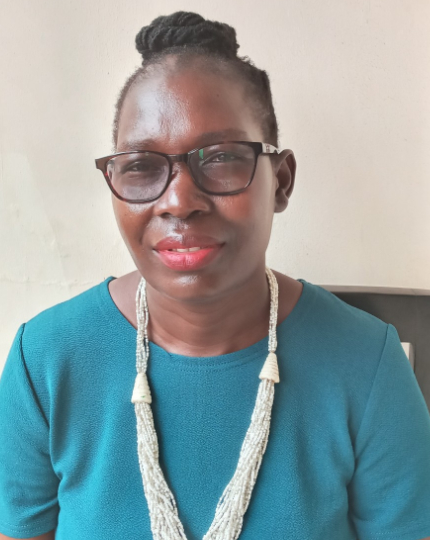
Photo courtesy of Josephine Chandiru
As women of South Sudan, we must stand up and say enough is enough by doing every small thing possible to deter violence against women and girls."
Júlia Wachave - Mozambique
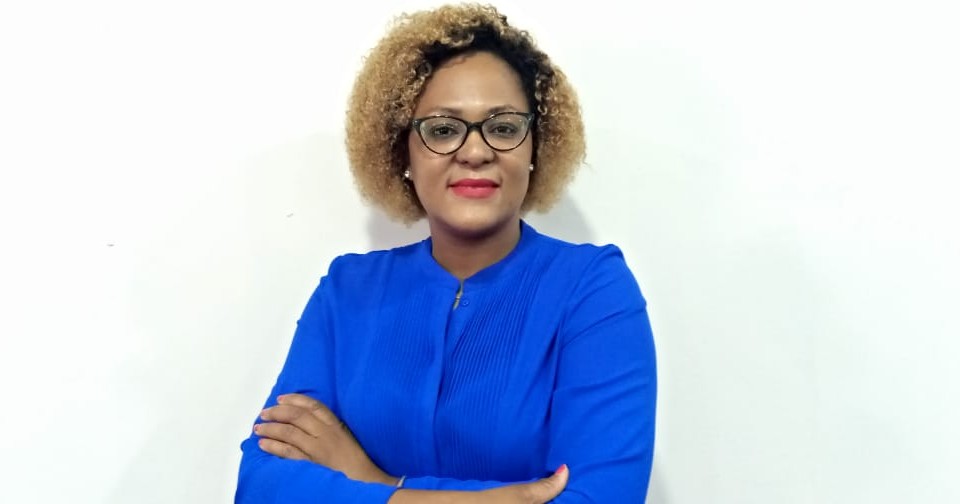
Júlia Wachave was appointed in 2021 as Executive Director of the Association for the Protection of Women and Girls (PROMURA) in Cabo Delgado.
Jurist by profession, she defines herself as a social activist, feminist and human rights defender mainly in the area of Gender Based Violence (GBV), since 2001. She is also a member of the Cabo Delgado NGO Fórum (FOCADE), “Fórum Mulher” Women´s Network and International Federation of Women in Legal Careers (FIFCJ). In the past, she was Coordinator of the Association of Women in Legal Careers (AMMCJ) in Cabo Delgado.
In 2015, she won the SADC Gender Protocol National Summit award at the thematic of Constitutional and Legal Rights, through the presentation of the practice of revision of the Penal Code.
Julia has in been the forefront of ground operations to provide assistance to internal displaced women in northern districts of Cabo Delgado where they were forced to abandon their places of origin because of the armed conflicts.
Julia in partnership with UN Women, Provincial Social Services among other partners provided first response to women in transit centers with dignity kits.
She participated at several forums held at the central level to report to critic situation of women in resettlement center, and the challenges they face as they wait for allocation to new resettlement centers.
Zainab Adam Sheen - Sudan
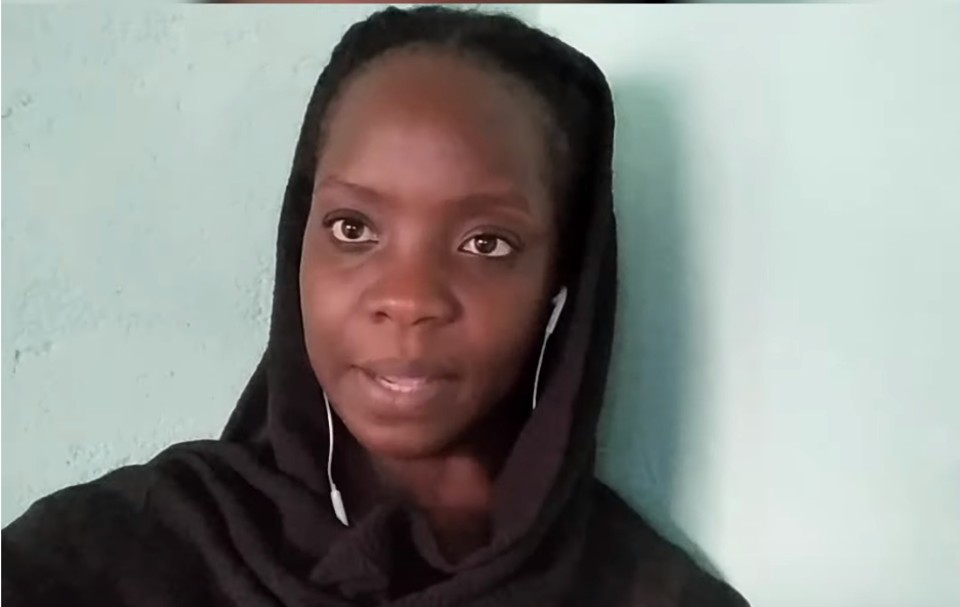
Zainab Adam Sheen is a feminist activist and vice president of the Federation of Persons with Disabilities in Sudan.
![]() I fight for peace and women's rights in my country. Even though war and bad education in my country scuttle us apart, my activism is not put on hold and I continue to raise awareness and educate young females about their political, cultural and civil rights. I want African leaders to have faith in youth and never give up. Here is what you can do to help; Educate young people and increase their capacities through awareness campaigns and trainings.
I fight for peace and women's rights in my country. Even though war and bad education in my country scuttle us apart, my activism is not put on hold and I continue to raise awareness and educate young females about their political, cultural and civil rights. I want African leaders to have faith in youth and never give up. Here is what you can do to help; Educate young people and increase their capacities through awareness campaigns and trainings.
Khowla Mohamed - Somalia
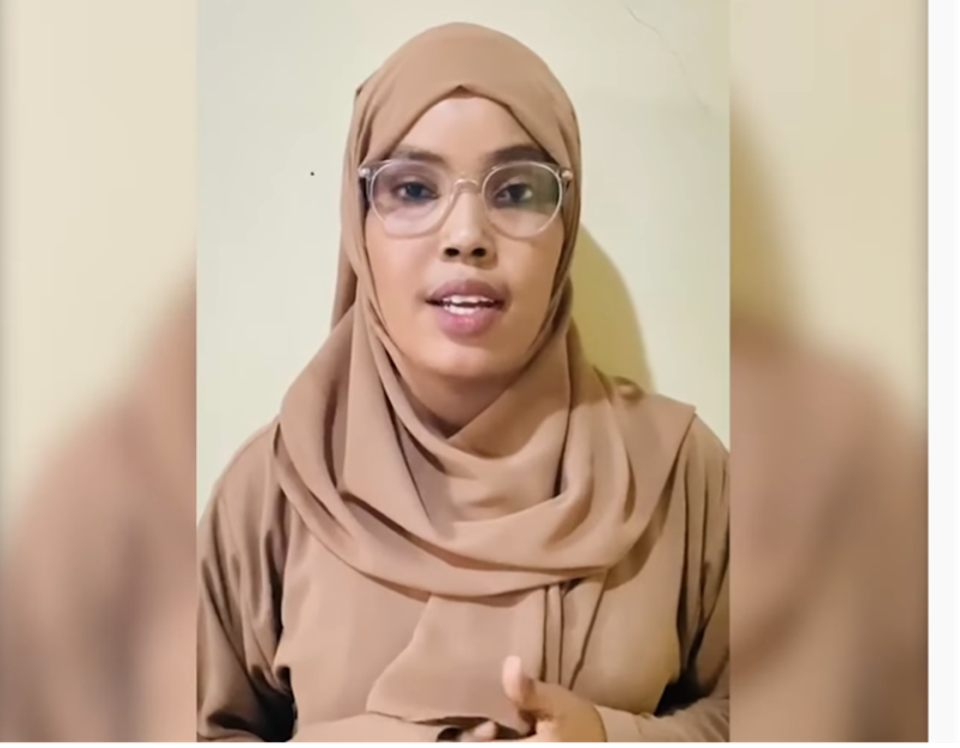
![]() I fight for women's rights and gender equality and access to justice for all. So many women and men are subjected to and abuse and neglect. I want women to feel the community is safe for them, that they can practice their rights and their voices can be heard. My advice to my fellow activists is to stay strong in this fight and to continue to demand equality and justice.
I fight for women's rights and gender equality and access to justice for all. So many women and men are subjected to and abuse and neglect. I want women to feel the community is safe for them, that they can practice their rights and their voices can be heard. My advice to my fellow activists is to stay strong in this fight and to continue to demand equality and justice.